#advertising
Volkswagen of America Temporarily Reins In Adverts Amid Diesel Scandal
If, while watching your team crush it this weekend, you see few Volkswagen ads, you’re not alone; VW of America is reining in advertising for two weeks.
Car Buying: Is That New Car Price Too Good to Be True?
Price is the deciding factor in many new car purchases, so it’s no surprise that dealerships do all they can to advertise the lowest number possible. While the internet has given consumers a lot of power when it comes to purchasing a new car, many consumers still fall for age-old pricing tricks.
One of the easiest ways to reel people into a dealership is to set up an advertisement for a decently optioned popular car at a sale price significantly lower than MSRP. This advertisement will usually be the lowest in the geographic area and would cause a loss for the dealership if sold. The way that deceptive dealers get around honoring the advertised price is by specifying a single stock number that qualifies and then asking a friend or relative to put a deposit on that specific vehicle as soon as the advertisement goes up online or in print.
TrueCar Involved In "Deceptive Business Practices" Says Lawsuit
A lawsuit brought forward by a group of 100 auto dealerships are alleging car-buying service TrueCar of “deceptive business practices”, reports Automotive News.
The lawsuit claims TrueCar’s advertising, which proclaims transparency in vehicle transaction prices for customers, does not disclose the $299 and $399 dollar fees that are paid by dealers for new and used car sales brokered by TrueCar.
Smart Decides Cursing Children Are Hilarious, Clever [Video]
Ahead of its new Fortwo and Forfour models, Smart is releasing an advertisement destined to live only on the Internet.
The ad — titled “Swearing Kids” — is completely self-explanatory and accurate. It is wholly uncensored and mostly funny and full of naughty language that’s definitely Not Smart For Work.
Project CARS, Just Like Many Real Cars, Can't Match The Media Hype
Project CARS is probably the most hotly-anticipated automobile-related video game to “drop” in the past few years. It’s ridden a positively Kanagawan wave of media hype and compensated “viral” marketing to its release – but at least one well-informed source is saying that this new emperor is decidedly trouserless.
Wall Street Journal V. GM: A Public Battle For Editorial Independence
Once upon a time, The Wall Street Journal faced off against General Motors over editorial independence, and won.
Uber Safe Helps Drunk Torontonians Make It Home Safely
Should you be in Toronto having a few with the TTAC Zaibatsu, and you need a lift home, Uber’s Uber Safe program might be what you need.
March Madness, Bad Car Ads And Grown Men Crying Over Games
I have a hard time being invested in televised sports. I could put it in my own words, but the best explanation comes from this essay, which likened it to being in an abusive relationship.
Lincoln 'Dares Greater' Than Cadillac In Google SEO Game
Oscar viewers who are seeking on Google the Cadillac that “dared greatly” are suddenly hearing Matthew McConaughey’s voice, thanks to Lincoln’s SEO skills.
Cadillac's Oscars 2015 Adverts Channel Teddy, Shows No Product
Melody Lee may or may not be on the red carpet Sunday, but Teddy Roosevelt’s essence will be felt in one of Cadillac’s Oscars 2015 adverts.
Super Bowl Auto Maker Ads - Not Quite As Bad As Pass Play on 2 and Goal on the 1, but Close
TTAC reader David Obelcz is back with his rundown of the latest crop of Super Bowl ads.
For some watchers of the Super Bowl the game being played is meaningless. For them the sport is not on the field and the debate is not that the Patriots are one of the most dominate teams in football history and Tom Brady is the greatest quarterback to play the game why Pete Carroll didn’t give the ball to Marshawn Lynch in a 2 and goal on the 1 yard line. It isn’t meaningless to them because their team didn’t make the big game either. For some, the Super Bowl is all about the advertisements that run.
For the 2015 Super Bowl there were fewer car advertisements than previous years and from a marketing stand point, mostly duds. Thirty-eight national ad campaigns debuted that were required to turn 60 minutes of sport into four hours of television, 7 from auto makers. In addition, General Motors, Ford and Mini showed previously released advertisement in the 30 minutes prior to kickoff.
Some of the Best and Brightest of this hallowed site have suggested that Detroit sells on emotion, and emotion doesn’t sell product. If that’s true than a lot of ad agencies got it wrong this year because not just auto makers, but most advertisers played on emotion. For some including Nissan, Nationwide, and Dove, there was more emotion than the look on Richard Sherman’s face when Malcom Butler picked off Russell Wilson.
On to the ads.
Cadillac's New Brand Identity To Grace Oscars' Red Carpet
Want a selfie with Melody Lee at this year’s Oscars? While that may or may not happen due to a number of factors, Cadillac will grace the B&B’s viewing parties with its presence.
A Man Who Wears the Texaco Star and the Man Behind the Jingle
Brian Saylor has managed to combine two of his passions, old trucks and Texaco memorabilia. You can see him at Detroit area car shows with his Texaco trucks, Texaco gasoline pump and assorted Texaco merchandise, with Saylor dressed in the uniform that Texaco service station employees would have worn a couple of generations ago. Yes, Virginia, there was a time when gas station employees wore uniforms and they actually serviced your car. They even sang songs about them. Okay, so they were advertising jingles, but I bet most Americans over the age of 50 recognize, “You can trust your car to the man who wears the star, the big bright Texaco star.”
Edmunds Retracts Haggling Parody Amid Dealer Outcry
As you all know, the TTAC Zaibatsu prides itself on not having to worry about things like upsetting brands for telling it like it is for a given product. Of course, this does sometimes mean we get blackballed by said brands for not drinking the Kool-Aid, but we have our ways around those roadblocks.
Alas, Edmunds doesn’t have those ways, resulting in a series of ads retracted after a number of dealers took issue with the content.
It's The New Motoramic Chevrolet!
Earlier this week TTAC ran an insightful post by Abraham Drimmer on the history of autonomous cars that featured a promotional film about General Motors’ Futurama exhibit at the 1939 New York World’s Fair. That film was produced by the Jam Handy Organization, the Detroit based motion picture studio famous for its educational film strips and promotional films. GM executives must have liked the “ama” suffix because a few years later in the 1950s they used it to name their annual touring display of concept and show cars the “Motorama”. Just as the Futurama gave Americans a look at the highways of the future, in its day, Motorama became synonymous with cars of the future. Perhaps that’s why Chevrolet decided to use the word “Motoramic” to describe their all new 1955 models and again hired the Jam Handy studio to promote them.



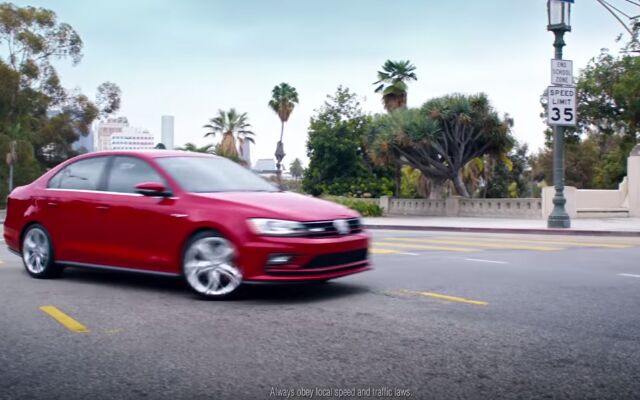


![Smart Decides Cursing Children Are Hilarious, Clever [Video]](https://cdn-fastly.thetruthaboutcars.com/media/2022/07/17/9042888/smart-decides-cursing-children-are-hilarious-clever-video.jpg?size=720x845&nocrop=1)
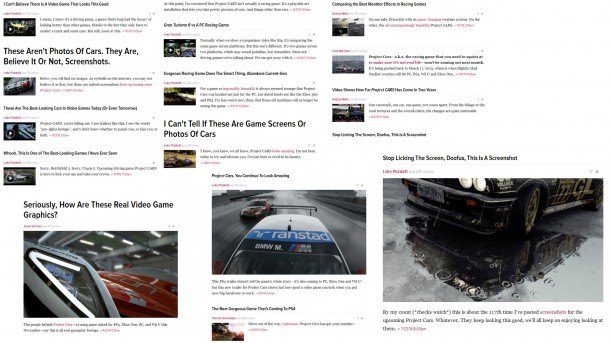
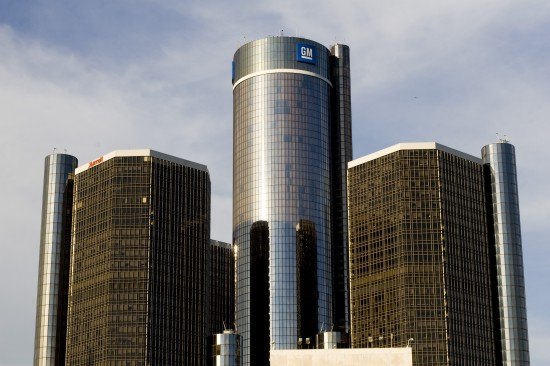
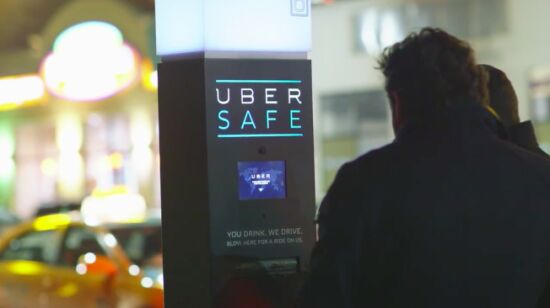

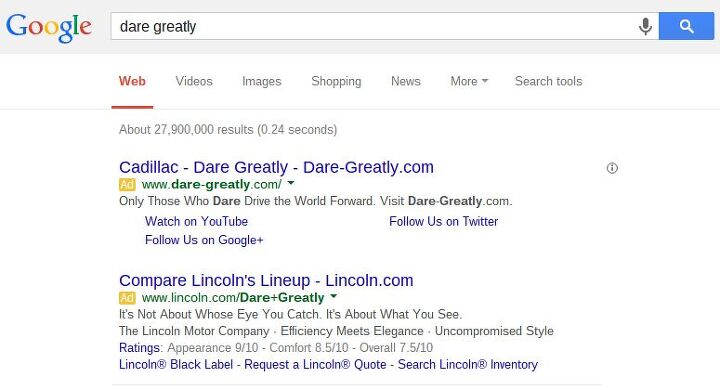




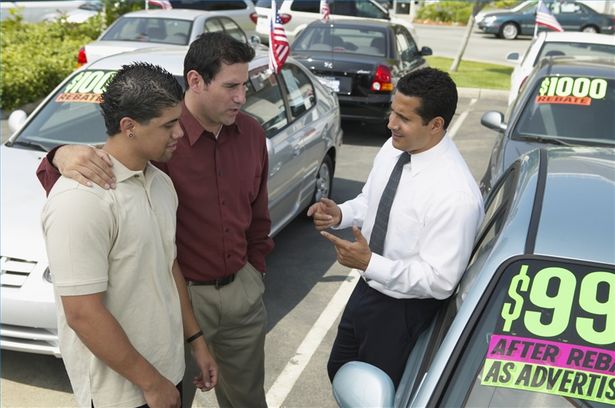












Recent Comments